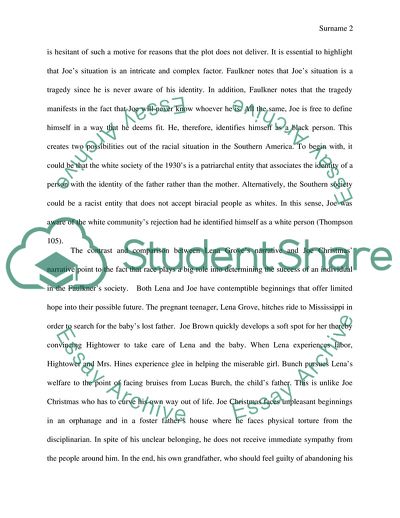Cite this document
(Racism in Light in August Essay Example | Topics and Well Written Essays - 1500 words, n.d.)
Racism in Light in August Essay Example | Topics and Well Written Essays - 1500 words. https://studentshare.org/literature/1830548-essay-two-light-in-augusut
Racism in Light in August Essay Example | Topics and Well Written Essays - 1500 words. https://studentshare.org/literature/1830548-essay-two-light-in-augusut
(Racism in Light in August Essay Example | Topics and Well Written Essays - 1500 Words)
Racism in Light in August Essay Example | Topics and Well Written Essays - 1500 Words. https://studentshare.org/literature/1830548-essay-two-light-in-augusut.
Racism in Light in August Essay Example | Topics and Well Written Essays - 1500 Words. https://studentshare.org/literature/1830548-essay-two-light-in-augusut.
“Racism in Light in August Essay Example | Topics and Well Written Essays - 1500 Words”. https://studentshare.org/literature/1830548-essay-two-light-in-augusut.


